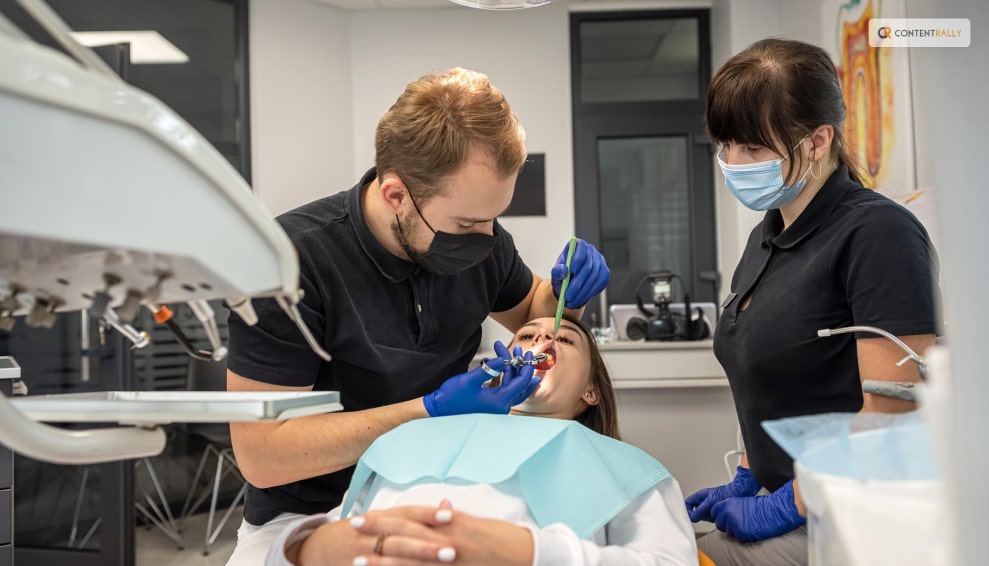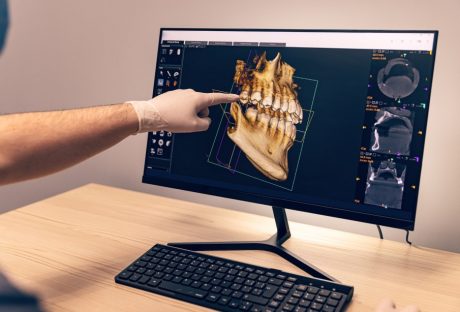In actuality, orthodontists undergo specialized training that qualifies them as specialists in tooth straightening. They must complete two to three additional years of coursework. Then, they can become an orthodontist and obtain a certification in orthodontic care. Orthodontists treat a wide range of dental alignment problems, commonly referred to as “malocclusion.” This comes after receiving their license and certification.
For patients of all ages, they employ precise clinical techniques to align teeth safely and effectively and create healthier dental structures. If you’ve ever received orthodontic treatment, you’ve probably seen the amazing outcomes these skilled medical practitioners help you achieve.
Even though becoming an orthodontist is a difficult, competitive, and costly career path, orthodontists benefit from high pay, excellent work-life balance, and a welcoming, social, teamwork-based environment.
Are you interested in this field? Do you want to know how long does it take to become an orthodontist? Keep reading to learn how to work in this area of medicine.
How Long Does It Take To Become An Orthodontist?

The study that goes into orthodontics is pretty massive, and it remains a lifelong process. Orthodontists take up a subject that costs an incredible sum but pays too well in the long run. If you are curious as to how long it takes to become an orthodontist, you are not alone.
Education And Training Requirements

In order to become an orthodontist, there are levels that need to be crossed. Here, we are discussing it in detail. This should give you an idea of how long it take to become an orthodontist.
Finish Dental School To Become Licensed
In order to become an orthodontist, one must first earn a doctorate in dentistry and obtain certification as a dentist. You must complete a bachelor’s degree (though some colleges offer a combined degree program) in order to get admission to a dental school. You will also need a passing score on the Dental Admission Test (DAT).
Like medical schools, dental schools are extremely demanding and competitive. Additionally, they are expensive. Depending on the program, a dental school degree can cost anywhere from $150,000 to $300,000.
Fortunately, the majority of dental professionals discover that the expense of school eventually pays off because dentist as well as orthodontist have high salaries. According to the U.S. News, dentists make a median salary of $151,850, while an orthodontist’s salary is $208,000.
A doctor of dental surgery (DDS) or a doctor of dental medicine (DMD) are the two categories of doctorates. Depending on your program, the distinction may exist, but you can practice dentistry with either certification.
Dental schools typically offer four-year degrees. Typically, the first two years go by in a classroom, studying topics like oral pathology, anatomy, biochemistry, microbiology, and radiology. Students will study under a licensed dentist for the next two years in order to gain experience treating patients in a clinical setting.
Orthodontic Residency
In their final year of dental school, prospective orthodontists apply to orthodontic residencies; upon earning their DDS or DMD, they will become certified dentists and be eligible to start an orthodontic residency.
In addition to taking and passing the National Board Dental Examination, dentists who choose not to pursue further education must also fulfill their state’s licensing requirements before they can start practicing. Although dentists are still capable of providing orthodontic treatment, they lack training in this area specifically. As a result, the majority of dentists working today are registered orthodontists who have finished a residency. The term “orthodontist” is exclusive to those dentists.
An orthodontic residency is your next step when becoming a licensed orthodontist for those who want to work as full-time practitioners of orthodontics. It is often attached to a university.
How To Get Into An Orthodontic Residency Program?
It’s tough to get into an orthodontic residency. Only one spot is available for every fifteen applicants, according to the American Association of Orthodontists. The best method to secure a spot in an orthodontic residency is to graduate in the top percentage of your dental school class. A prospective orthodontist may submit multiple applications before being admitted to a program.
The National Board Dental Examination is the national licensing exam that dentists must pass in order to be eligible to apply to most residency programs. Unless you failed the exam and had to retake it before applying to schools, you won’t need to take a break between dental school and your orthodontic residency because this exam is valid during dental school.
The American Association of Orthodontists’ database has a list of orthodontic residencies that have received CODA accreditation. Both the United States and Canada offer the programs on this list. Most states accept orthodontic training from Canada. However, individuals who have received orthodontic training abroad will probably need to retake their studies in the United States. That, if they want to practice dentistry or orthodontics there.
Residency programs range from 3-5 years, depending on the organization. Orthodontists receive extensive training in both the art and science of orthodontia during their residency. They learn about the proper alignment of dental, jaw, and facial mold, as well as how to move teeth in a safe and effective manner.
How many years does it take to become an orthodontist, you ask? Their time learning the science is much shorter than their time in practice. Orthodontists who complete a residency program will have treated hundreds of patients, providing them with extensive knowledge in this field.
Salary Of Orthodontics
While some orthodontic residencies don’t charge their residents, others do. If they do have compensation, it usually takes the shape of a stipend, which is a modest yearly sum used to pay for conference travel or some other necessities. Compared to university residencies, hospital residencies are more likely to provide a stipend.
Due to its exceptional location and exceptionally high stipend (first-year residents earn over $51,000), this program is highly competitive.
For example, Montefiore Medical Center, Bronx, New York.. This program provides top-notch training along with a $60,000 stipend for the duration of the residency.
Getting The License
You will be qualified to begin orthodontic practice after completing an orthodontic residency successfully. In order to accomplish this, you need to have fulfilled both the state licensing requirements in the state in which you plan to practice dentistry and the national dental board exam. Like dentists, orthodontists must meet the same licensing requirements.
Orthodontists have the option of earning board certification from the American Board of Orthodontics (ABO), though practice in the United States does not require board certification (only in Canada does). Written and clinical exams are required for orthodontic board certification. Visit the American Board of Orthodontics website to find out more about obtaining board certification.
Before starting their residency, the majority of orthodontists had already passed the National Board Dental Examination. Throughout their careers, all practicing medical professionals are required to recertify and complete continuing education requirements.
States have different requirements for licensing, but most of them ask you to pass a “jurisprudence exam,” which measures your familiarity with the dental laws of that state. The state-by-state licensures database maintained by the American Dental Association provides information on dental licensing requirements in each state. Additional clinical exams or requirements may apply.
Staying Licensed
Just like all other medical professionals, orthodontists must maintain current licensures through regular recertification and continuing education.
Dentists and orthodontists are required by law to complete 40 hours of professional education annually in most states. In order to give their patients the best possible care, dental professionals are kept up to date on the most recent clinical and research advancements in their fields. The requirements for renewing a dental license vary by state; for more information on how to maintain your license current, contact the dental board in your state.
Wrapping Up
So, how long does it take to become an orthodontist? Residency programs vary in length, from three years to five years. Throughout their residency, orthodontists learn from experts in the field to ensure safe and efficient advancement.
It provides them with a thorough understanding of this specialty. This entails staying updated about conducting clinical examinations, obtaining and analyzing diagnostic records, providing appropriate direction for dentofacial orthopedics, etc.
Key traits that an orthodontist should have include patience, effective written and verbal communication, and the capacity to clarify difficult ideas. These come in handy when dealing with children and teenagers, who make up the bulk of orthodontic patients.
You need to apply for and obtain a separate orthodontics license from your national registering body or dental board in addition to your dentist license. It might call for passing a test. After earning your orthodontics degree and license, you can easily find employment or open your own practice!If you have thoughts to share or questions to ask about how long does it take to become an orthodontist, ask us below. We would love to hear from you!
Learn More About:
- Why Going To The Dentist Is A Must?
- The Ultimate Guide To Finding The Best Dentist In Vaughan
- Radiant Smiles: A Guide To Different Types Of Dental Implants























